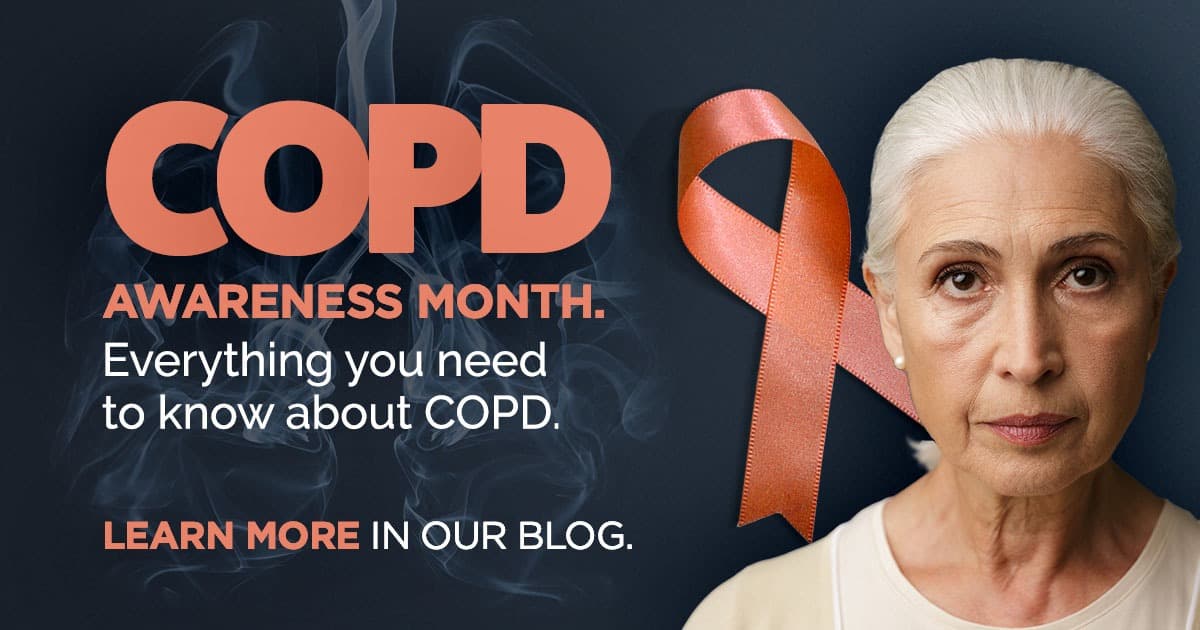An estimated 15.3 million Americans have COPD, with many more out there undiagnosed, not knowing they have it. COPD can be challenging to deal with, but with early intervention and treatment, your quality of life can be improved, and ultimately, you breathe better. That is the message for this year’s COPD Awareness month this November in their “Learn more, breathe better” campaign.
What is COPD?

COPD stands for chronic obstructive pulmonary disease. It is a group of progressive lung diseases that make it difficult to breathe. The two most common ones are emphysema and chronic bronchitis. Emphysema affects your ability to expel air out, and chronic bronchitis narrows the bronchial tubes making it hard to breathe and allows mucus to build up. Long term exposure to chemical irritants causes COPD, and smoking is the number one cause.
Early symptoms include shortness of breath, needing to clear your throat often, and a mild recurring cough. Later stages include tightness in the chest, lack of energy, frequent respiratory infections, fatigue, and weight loss.
The Goal of COPD Awareness Month
November marks the COPD community’s annual initiative to come together with one voice and create awareness around this disease. The goal is to conduct outreach to bring greater visibility to COPD while encouraging people to recognize the symptoms to seek treatment faster. The “Learn better breathe better” program for 2020 has a theme for each week in November:
It’s never too early or late to get involved. Take part in one of the many events listed here.
Clinical Research and COPD
In recent study data, it was concluded there is evidence COPD patience face a three-fold more significant risk of mortality from COVID-19. This is one example of how we are “learning better” through the help of research studies.

Clinical research studies and the volunteers who participate in them help us discover new ways to detect, treat, and eventually cure diseases like COPD. Continuing research is necessary for COPD so we can provide a healthier and longer future for those diagnosed. At the Florida Institute for Clinical Research, we are committed to improving treatments for COPD. To learn more about our currently enrolling COPD studies, visit our study page on our website.
References:



